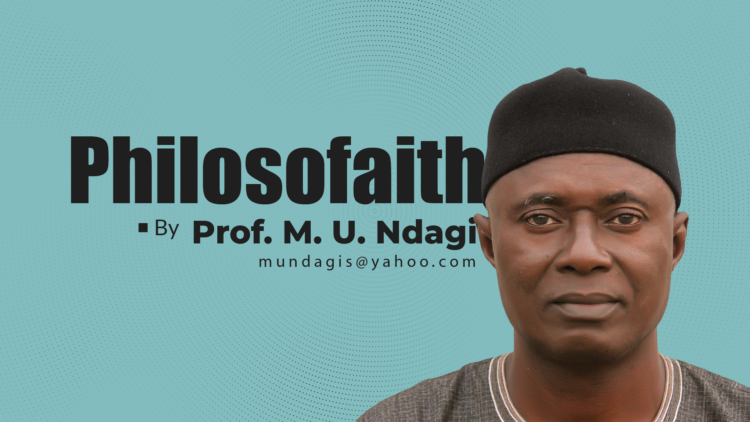Having felt that the affluent, using their recourses in the cause of Allah might take all the reward leaving just little for them; some companions of the Prophet, Salla-llahu Alayhi Wasalam (SAW) came to him and complained of their limited chances of getting as much as the reward being earned by the wealthy. According to them, they lacked the capacity (due to poverty) with which to compete favorably with the rich in terms of using money to earn greater rewards for greater acts of righteousness.
However, the Prophet (SAW) educated his companions about their misconception. He informed them of several non-material acts of worship which the poor could do to earn as much (if not more) reward as may be earned by the rich. They include, as mentioned by the Prophet (SAW), exchange of pleasantries; settling a dispute between two individuals, helping someone to mount on to his beast or hoisting on to the beast his baggage, removing something harmful from the path, and a good speech.
Imam Muslim relates in the twenty-fifth hadith of Annawawi’s collection of forty traditions that Abu Dharr (RA) said some people from among the companions of the Prophet (SAW) said to him (the prophet): “O Messenger of Allah! The rich people take off all the rewards. They say prayer just as we do; and then they can give in charity out of the super abundance of their wealth (and thus surpass us in piling up meritorious deeds that will earn rewards for them).” He (the prophet) said, “Has not Allah given you what you can give in charitable alms? Truly, in every Tasbih (Saying “Subhan-Allah”), there is alms; in every Tahmid (saying “Alhamdulillah”), there is alms; In every Tahlil (saying “La ilaha illa-llah”), there is alms; in every exhortation of others to doing what is right or forbidding the doing of what is wrong, there is alms; even when one of you martially approaches his wife, there is alms in that …”
Many people, today, believe that it is only the rich that smile. For such people, it’s only the poor and poor alone that suffer. Such people equally think that the rich do not have reasons to experience adversities in life as if misfortunes remain the exclusive experience of the poor. However, the realities of the lives of those at the two extremes of surplus and paucity reveal that while the rich may sometimes cry regardless of their material comfort, the poor may at many times also have a cause to smile.
In the same way that it is not always happiness with the rich who have all the good things of life which money can buy, it is also not a rule (of existence) that displeasure, distress and discomfort are permanently characteristic of the poor. You may lack wealth; a good house to live in; a good car or none at all; yet, your mind may be at rest more than that of the rich who seemingly have less or nothing to worry about in life. Many of us always forget that uneasy lies the head of the wealthy. The rich could surprisingly have more to worry about than the poor. A philosopher once said, “The problems of many people begin as soon as their prayers are answered”.
With a large conglomeration of companies, ware houses, huge bank accounts, on-going contracts, employees’ emoluments; and assorted business ventures; the mind of the rich is under persistent pressure of how to make his business grow bigger or, at least, sustain it. The larger a business enterprise is, the heavier the psychological stress bore by the owner. While the rich may be worried about the security of his wealth and property, the poor who of course have little or nothing of business interests to be secured or protected, is free from the anxieties of the threats posed by various business risks. Bankruptcy, when it manifests, is another crisis that burdens the heart of the rich. In this is a cause for the poor to smile.
Little do some of us remember that “not all that glitters is gold.” The casual publication by some commercial banks in the country of their list of huge debtors is food for thought. Many who do not have the capacity to pay back the bank loans usually become hypertensive. Most of the worries that occupy the mind of the rich, which sometimes lead to critical health challenges associated with worries, hardly visit the heart of the poor. A poor individual that lacks collateral with which to secure a bank loan is free from anxieties of unpaid banks loans, and therefore may wish to smile and even laugh. There’s always a wisdom in Allah’s choice to make you poor.
Power and money have today become Siamese twins that (as it appears) can only be fathered or mothered by the rich. But, if one may ask, is it not better to be without either of the ‘Siamese’ than to have a ‘child’ that would lead to destruction? It would be better to remain smiling without a child than to have one that would be a source of permanent grief.
This reminds us of Khidr and his voyage with Prophet Musa (AS) during which Khidr, acting upon a divine authority, slew a young man who was an outlaw and whose parents were worthy pious people. Having slain the young man, it was desired as stated in Qur’an 18:81 that “Their Lord would give them in exchange (a son) better in purity (of conduct).” May Allah (SWT) grant us the blessings and comfort of a peaceful mind regardless of our socio-economic situations, amin.









